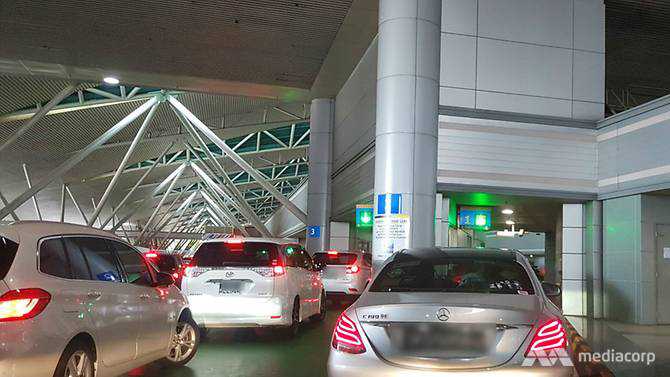Malaysia delays VEP implementation to 2nd half of this year

Malaysia is delaying the implementation of the Vehicle Entry Permit (VEP) scheme by “at least six months”, while it looks at improving the installation process of the radio frequency identification (RFID) tags for Singaporean vehicles.
Transport Minister Anthony Loke said on Monday (Jan 6) that the ministry would work out a better system to speed up the installation.
“(We are not putting on hold the enforcement) indefinitely, but we will work out a programme where hopefully by second half of this year we can implement.
“But as I said we have not fixed a time frame right now. At least for another six months we will try to solve the problem,” he said.
Malaysia announced back in 2007 that all foreign-registered vehicles entering the country will need a VEP, which it said was meant to tackle car theft and cloning syndicates and prevent vehicles with outstanding fines from leaving the country.
The Malaysian Transport Ministry originally said the VEP would be enforced from October last year, but later announced in September that it would defer the implementation “during peak hours” for outbound traffic until further notice.
Commuters from Singapore have complained about lengthy waiting times, a lack of appointment slots and little help from Malaysian authorities in obtaining the RFID tags.
During a visit to the Kuala Lumpur railway station on Monday, Mr Loke noted that there are only four RFID installation centres for Singaporean vehicles to install the tags, which caused a backlog.
Out of the 218,146 Singaporean vehicles registered for the VEP, only 61,253 have successfully installed the RFID tags.
“We are working out a better mechanism to make it simpler and easier for Singaporean cars to come in and install the RFID,” he said.
Asked if the ministry would outsource the installation, Mr Loke replied: “We are looking at various options”.
The Malaysian government would not start enforcing the VEP now, so as not to aggravate the traffic situation at the Causeway, he said.
“We know there is a problem in terms of getting the number of cars to register. That’s why we’ve decided to delay it for a while."
